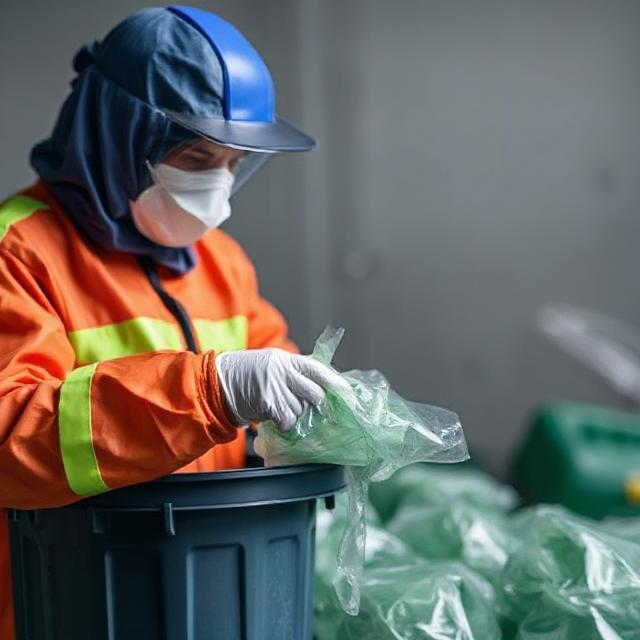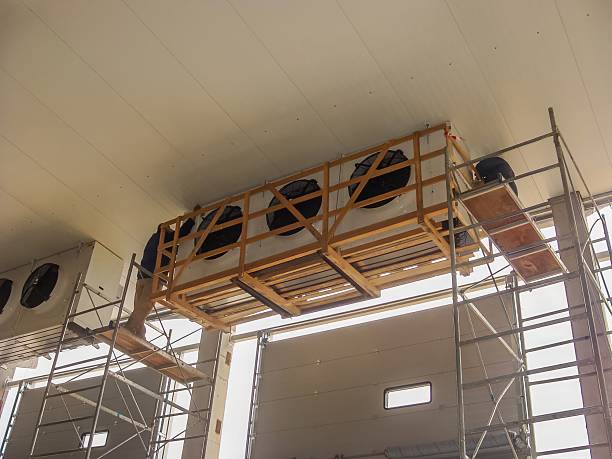Personal protective equipment (PPE) has become essential in protecting individuals worldwide, particularly during health crises. With the surge in PPE usage, particularly in healthcare and industrial settings, the environmental impact of single-use PPE has raised significant concerns. As waste accumulates, the push for recyclable PPE has intensified.
The Challenges of Recycling PPE in Tennessee
Recycling PPE in Tennessee presents unique challenges that are exacerbated by contamination, material complexity, and logistical barriers. Let’s examine these issues in detail.
Contamination Issues in PPE Waste
One of the main obstacles to recycling PPE in Tennessee is contamination. PPE, such as masks, gloves, face shields, and gowns, is frequently used in environments where it comes into contact with hazardous substances. This includes healthcare settings where PPE is exposed to bodily fluids, pathogens, and bacteria. Because of contamination, recycling centers in Tennessee often cannot accept used PPE for standard recycling.
Material Complexity: Sorting and Processing PPE
The materials used in PPE are often complex, consisting of various substances such as plastics, metals, and fabrics. For example, a face mask might include multiple layers of polypropylene, elastic ear straps, and a metal nose bridge. Sorting and processing these components for recycling can be labor-intensive and requires specialized equipment, which is not available at all recycling facilities in Tennessee.
Logistical Challenges in Collecting and Transporting PPE
In Tennessee, logistical hurdles further complicate the recycling of PPE. PPE waste is often generated in large quantities in high-risk environments like hospitals, manufacturing plants, and clinics. The challenge lies in ensuring that this waste is collected safely and sent to the right recycling facilities.
Innovative Solutions for Recycling PPE in Tennessee
Despite the challenges, there are ongoing efforts to develop and implement solutions for recyclable PPE more effectively. Let’s explore some of these innovative approaches.
Manufacturers Developing Recyclable PPE Products
One promising development is the shift toward producing recyclable PPE. Some manufacturers in Tennessee are now focusing on creating face masks, gloves, and other PPE made from recyclable materials such as polypropylene. By using materials that can be processed more easily in recycling facilities, these manufacturers are addressing one of the key barriers to PPE recycling.
Moreover, several companies are designing reusable PPE products, such as washable masks and gowns, to reduce the need for disposable items. This shift can significantly reduce waste and make PPE more sustainable.
Environmental Groups Supporting PPE Recycling Initiatives
Environmental organizations in Tennessee are instrumental in supporting PPE recycling initiatives. These groups are working to raise awareness about the environmental impact of PPE and to promote responsible disposal practices. By partnering with local recycling centers and healthcare institutions, environmental groups are helping to create dedicated PPE waste streams.
These organizations are also advocating for legislation that encourages the development of recyclable and biodegradable PPE products. Additionally, they provide guidance on how businesses and individuals can properly dispose of used PPE, ensuring it doesn’t end up in landfills.
Technological Innovations in PPE Recycling
Technological advancements are playing a crucial role in making PPE recycling more feasible in Tennessee. For instance, several companies are developing machines capable of sorting and cleaning mixed-material PPE, which can help increase the efficiency of recycling processes. These machines separate materials like plastics, metals, and fabrics, allowing each component to be processed individually.
Furthermore, research into chemical recycling technologies offers promising solutions for breaking down complex PPE materials. These technologies could help recycle even contaminated PPE, potentially revolutionizing the way Tennessee handles PPE waste.
Why Recyclable PPE Matters for Tennessee
Recyclable PPE is crucial for reducing the environmental impact of waste in Tennessee. With the growing use of PPE, especially in healthcare and industrial sectors, the volume of waste continues to rise. Recyclable PPE offers a solution that can help minimize the amount of waste that ends up in landfills. Additionally, recyclable PPE supports Tennessee’s broader sustainability goals by contributing to the circular economy.
The Future of Recyclable PPE in Tennessee
The future of recyclable PPE in Tennessee looks promising, thanks to ongoing innovation, regulatory support, and increased awareness. As more manufacturers embrace recyclable materials and sustainable practices, and as technology advances to handle more complex recycling processes, Tennessee could lead the way in establishing a model for PPE recycling nationwide. Increased public education and the development of recycling infrastructure in both urban and rural areas are crucial steps toward achieving this goal.
Conclusion
Recycling PPE in Tennessee is a challenging yet necessary task. From contamination to material complexity and logistical barriers, the obstacles are significant. However, innovative solutions—from recyclable PPE products to new recycling technologies—are paving the way toward more sustainable practices. With ongoing collaboration and a focus on sustainability, Tennessee can make meaningful progress in reducing the environmental impact of PPE waste, ultimately creating a greener future for the state.
FAQs
1. Why is recycling PPE so challenging in Tennessee?
Recycling PPE in Tennessee is difficult due to contamination from hazardous substances, the complex mix of materials in PPE, and logistical barriers like the lack of infrastructure in rural areas.
2. What types of PPE are recyclable?
Some types of PPE, like polypropylene face masks and gloves, are easier to recycle than others. However, many PPE products made from mixed materials are challenging to recycle.
3. How are manufacturers in Tennessee addressing PPE recycling?
Manufacturers in Tennessee are producing recyclable PPE products made from single materials like polypropylene, and some are also creating reusable PPE options to reduce waste.
4. What is being done to improve PPE recycling in Tennessee?
Environmental groups, manufacturers, and technological innovations are working together to improve PPE recycling in Tennessee. This includes raising awareness, developing recycling programs, and creating advanced technologies to process PPE more effectively.





